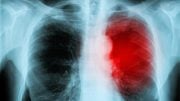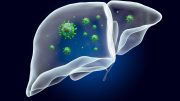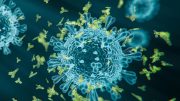
Recent weight-loss drugs show promise in treating obesity, but concerns include high costs, health disparities, and potential lifelong commitment. Despite challenges, this marks a turning point in effective obesity treatments.
In a recent Editorial, Cynthia Bulik and Andrew Hardaway discuss the advancements in medical treatments for obesity and weight loss. “With the emergence of new, highly effective weight-loss drugs, might the ‘fat decades’ become a closed chapter in the history of public health?” ask the authors. The “obesity epidemic” is a global health concern, with more than a billion people affected by obesity and many more overweight.
Factors Behind Obesity and New Treatments
Although various environmental, biological, and behavioral factors have been implicated in obesity, few consistently effective treatments exist for the disease. However, there’s renewed hope with the introduction of new weight-loss drugs. For instance, glucagon-like peptide-1 (GLP-1) receptor agonists, initially developed for treating diabetes, have displayed potential. They work by suppressing appetite and amplifying satiety signals from the gut to the brain.
Concerns Surrounding New Medications
However, there are concerns related to these new medications. Firstly, they come with a high price tag, which can exacerbate health disparities. This is especially concerning since obesity predominantly impacts marginalized racial, ethnic, and socioeconomic groups.
Moreover, weight regain is common once the medication is discontinued, functionally rendering them “forever” drugs with currently unknown potential long-term side effects. “Tackling these issues is essential to prevent unintended consequences brought on by the meteoric success of these drugs,” write Bulik and Hardaway. “We are entering an era in which effective obesity treatments exist for the first time.”
Reference: “Turning the tide on obesity?” by Cynthia M. Bulik and J. Andrew Hardaway, 3 August 2023, Science.
DOI: 10.1126/science.adj9953









This is a weird summary of an editorial in Science magazine. The editorial itself is mostly questions, and musings on there being obesity and treatments for it and the meaning of this being that they are issues. Also, this is an OLD editorial from August 3rd 2023, which thinks bariatric surgery is effective, meanwhile a “New Study Raises Questions About the Efficacy of Gastric Bypass Surgery” (scitechdaily, August 19 2023, citing a Aug 16 study). New medications are new, and we don’t know yet if taking them off-label is wise. Science the magazine is not science the process, and it’s not the magazine it used to be; don’t trust them with your health.
So, unfortunately the answer is “No”, but you already knew that if you applied Betteridge’s Law of Headlines or Hinchliffe’s rule, that if there’s a questionmark in the headline then the answer is no.
Every single new drug they put out is “a miracle today – a liability tomorrow”.
But people will flock to it, regardless, because it’s easier to pop in a new pill than to change the lifestyle.
A medical conspiracy to make healthcare more profitable through perpetual treatments was instigated in the year 1900 (“Murder by Injection,” Eustace Mullins, 1988). By 1935 then renowned immunologist Arthur F. Coca, MD (“The Pulse Test,” 1956) identified, studied and reported on a (my) kind of practically harmless individual nearly subclinical non-IgE-mediated food (minimally) allergy reactions which could be identified and treated at-home with mere pulse testing. In 1980 the US FDA approved the expanded use of added “cultured-free” (can cross the blood brain barrier) monosodium glutamate (MSG; e.g., “Accent”) knowing full-well then it would be harmful to “a subset of the population (FASEB reports on MSG to the FDA) but, apparently (if not intentionally), not “how, how many or how soon?” I became mysteriously, seriously ill and learned of my own allergies in 1981 with the US obesity/diabetes epidemic presenting by 1990 (CDC/NCHS data), with it going global with the so-called “Western Diet” ever since.